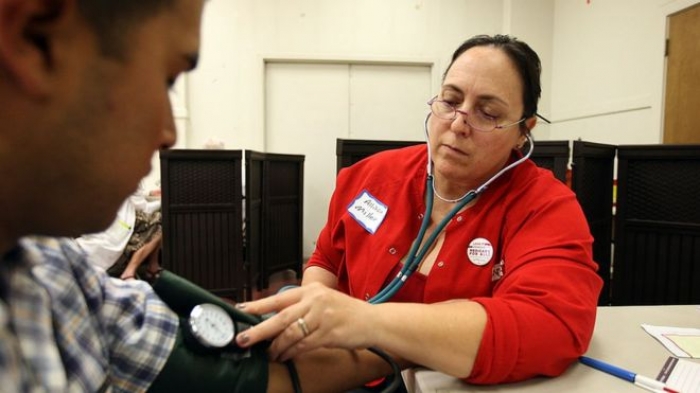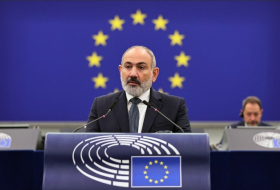The Senate plan drops a requirement for individuals to have health insurance and eliminates taxes on the wealthy.
Republicans, who released the bill after weeks of behind-closed-door talks, need 50 votes to pass it.
That means they can only afford to have two Republican rebels voting against it when it comes to the floor next week. No Democrats are expected to back it.
If it passes the Senate, it has to be approved by the House and by President Trump before becoming law.
Repealing the Affordable Care Act, also known as Obamacare, was a central promise of Republicans throughout his presidency.
Senators wrote their healthcare bill after their colleagues in the House of Representatives passed one six weeks ago.
The legislation affects tens of millions of Americans and a fifth of the US economy.
What's in the Senate bill?
Senate Majority Mitch McConnell, who crafted most of the plan, presented the Better Care Reconciliation Act Of 2017 to the upper chamber on Thursday.
"Republicans believe we have a responsibility to act - and we are," Mr McConnell said in a speech on the Senate floor.
The bill mostly aligns with a measure passed by the House last month, but ties federal subsidies for individuals based on their income rather than age - as the Affordable Care Act currently does.
It would make it more difficult for recipients to qualify for those subsidies, however, by implementing more restrictions on income requirements.
Critics of the House bill, which tied the subsidies to age, say it unfairly penalised older Americans.
The Senate plan phases out the expansion of Medicaid, a government health programme for the low-income Americans, more gradually than the House bill.
But it would impose deeper long-term cuts to the programme.
The bill also gives states more latitude in requiring insurers to provide essential health benefits guaranteed under Obamacare, including emergency and maternity care and mental health services.
Details of the draft also include:
- Repealing taxes on the wealthy and insurance companies
- Continuing payments to health insurance companies to reimburse them for subsidies used to help pay for out-of-pocket costs for low-income Americans for at least two years
- Stripping funding for US women's health group Planned Parenthood for a year
- Obamacare v Republican plan compared
The curtain has finally come up on the Senate healthcare bill, and the product of weeks of back-room negotiations looks a lot like the oft-derided House version.
Sure, there are a few key differences. In some places, it's more moderate - keeping in place income-adjusted subsidies to help less affluent Americans purchase insurance, for instance.
In other areas the cuts are actually much more aggressive.
It appears Senate Majority Leader Mitch McConnell hopes to mollify moderates and hard-liners by pushing the painful changes to low-income insurance programmes farther down the road.
Whether that's enough to cobble together the bare-minimum 50 votes necessary from the 52 Republicans in the Senate will be the big question next week.
Moderates and at-risk senators up for re-election last year are the ones to watch - folks like Susan Collins of Maine, Dean Heller of Nevada and Lisa Murkowski of Alaska.
Some others will groan and feign adamant opposition to wrangle a few last-minute deals to sweeten the pot, but they face the same reality as their House brethren.
They've spent the last seven years saying they'd tear Obamacare up "root and branch", in Mr McConnell's words, and they can't risk walking away empty handed.
What happens next?
Senator McConnell expects the bill to come to the Senate floor as early as next week, when the non-partisan Congressional Budget Office releases the plan's estimated cost and impact on Americans.
Republican senators are hoping to secure the 50 votes required to push through the measure, before sending it back to the House for approval of the new draft.
The House would need to pass the bill as it stands and send it to President Donald Trump's desk to sign into law or draft another version, which both chambers would again have to approve.
Mr Trump has previously referred to the House version as "mean" and implored senators to draft a more "generous" version.
How have Democrats reacted?
Top Democrat Nancy Pelosi denounced the Senate bill on Thursday, calling it "mean and heartless".
"It is still - as the president called the House bill - mean," she said. "So sad, Mr President. Heartless. Mean and heartless."
Meanwhile, protesters railed against the Senate healthcare bill during a sit-in outside of Mr McConnell's office on Capitol Hill.
Protesters were heard chanting, "No cuts to Medicaid - save our liberty!"
More about: #healthcarebill
















































